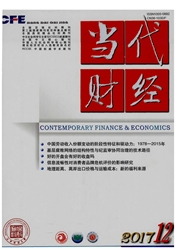

 中文摘要:
中文摘要:
以P2P网贷为代表的民间金融在中国尝试实践了利率市场化。相比于国外P2P网贷利率水平主要受借款人“硬”信息和“软”信息的影响,中国P2P网贷利率却表现为因平台而异。在研究中国网贷利率决定因素时,应同时考虑平台属性和具体借款项目属性两方面的影响。研究认为,民营平台的利率显著高于具有其他投资背景平台的利率;平台资金第三方存管和机构担保等本息保障方式能够显著降低借款利率;平台所属地区风险程度、借款期限等则显著提高借款利率;而项目自身的抵押担保方式对利率的影响不显著。中国P2P网贷投资者在风险识别方面非常重视平台风险,因此必须对中国P2P网贷平台提出具体规范。
 英文摘要:
英文摘要:
As the representative of the private finance in China, P2P online lending initially car-ries out the practice of interest rate marketization. Compared to foreign P2P online lending interest rate which is mainly affected by the borrowers' hard information and soft information, China's P2P online lending interest rate is heavily affected by the platforms. When studying the factors deciding China's online lending interest rate, we should take into consideration the impact from both the plat- form attributes and the specific loan attributes. The results show that the interest rate on the private platform is significantly higher than that on the platforms with other investment backgrounds. Such principal and interest guarantee modes as the platform funds deposited by the third party and the in- stitutional guarantee can significantly reduce the interest rates of roans, while the risk degree of the platform region, the term of loan and so on can significantly increase the lending rate. But the effects of the mortgage guarantee method of the project itself on the interest rate is not significant. China's P2P online lending investors pay special attention to the platform risks in their risk identification, so that concrete specifications must be made for the P2P online lending platforms.
 同期刊论文项目
同期刊论文项目
 同项目期刊论文
同项目期刊论文
 期刊信息
期刊信息
